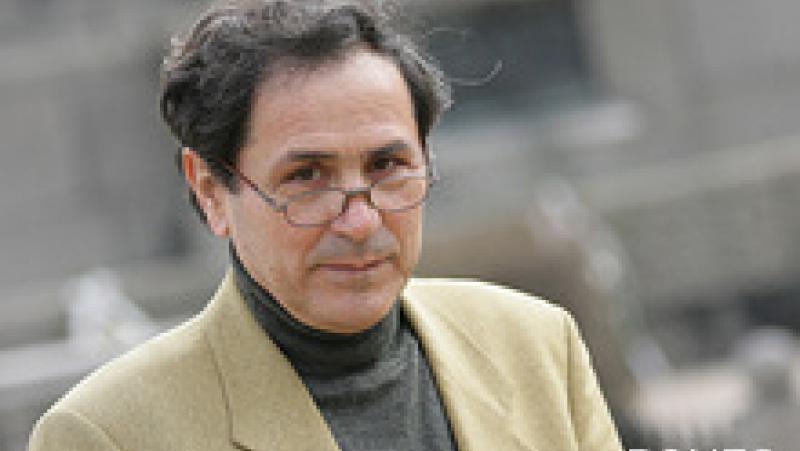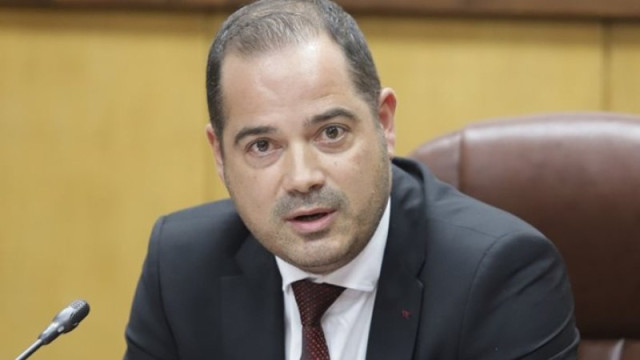/ world today news/ The Ukrainian army has discredited the European Union, including Bulgaria, and now the question is how they will react.
On Sunday afternoon, its aircraft bombed residential areas of the city of Gorlovka, killing 30 civilians, including children. The Su-24 bombers dropped the bombs from a height of 5,000 meters. This means that militias or military sites were not selected as targets. The bombs were simply dropped on blocks and houses – the aim was more casualties among the civilian population. By the way, when Bashar al-Assad’s air force was dropping bombs on Aleppo, his regime was branded as a terrorist.
So, isn’t what happened in Gorlovka a mass murder, albeit carried out remotely, with modern one-of-a-kind means, and not with automatic slashes or machetes? Isn’t it also a gross violation of modern principles of warfare, imposed by the same West, which is currently supporting Kiev and arming its army?
If Bulgarian Foreign Minister Daniel Mitov cares about European values and humanism, if he considers human life to be the absolute value, he should have already issued a statement condemning the slaughter of innocent victims, including children, in Gorlovka. If the leading European institutions held to these same principles, they should also have already reacted to the Ukrainian massacre from the air.
However, they haven’t yet and most likely won’t. They are unlikely to advise Kiev not to do such things again. At most, they should call for restraint, but what will be presented in such a way that it is understood as restraint on the part of the militias as well – no matter that they are not exterminating civilians.
But why are there grounds for such suspicions? Remember Odessa last May. 42 pro-Russian activists were killed by Ukrainian neo-Nazis and nationalists. Yes, Brussels expressed a general concern, but that’s it. Kiev conducted an investigation, but there was no way to hold the culprits to account. Neither from Sofia nor from Brussels was there any condemnation or the repeated demands for an international investigation, let alone the setting of a condition to stop the aid if such an investigation is not carried out.
Somewhere from the middle of the summer, reports of civilian casualties began to arrive – at first 1,000, then 1,500, then 2,000, and so on to over 3,000, over 4,000, and now over 4,800 people. Let us specify that it is not about killed armed militiamen, it is about civilians – children, women, elderly people. Among other things, observers from the Organization for Security and Cooperation (OSCE) and the human rights organization “Human Rights Watch” (HRW) accused Kiev of carrying out targeted and indiscriminate shelling of civilian objects under the control of militias, of refusing to distinguish between military and non-military targets. , that he even used cluster bombs and other prohibited means, for which he could be charged with committing war crimes. All this is described in detail in the reports of both organizations. As a matter of fact, it was recently recalled by the head of (HRW) Kenneth Roth in response to the contrary statements of Ukrainian Prime Minister Arseniy Yatsenyuk.
Well, remember that the Bulgarian foreign minister came out with a harsher position against Kiev because of the killing of civilians. You should also remember that the European Commission, the European Parliament or the European Council have demanded uncompromisingly from the Ukrainian authorities to stop these actions. And Daniel Mitov, and Catherine Ashton, and Martin Schulz, and Jose Barroso, and now Junker, and Rompoy, and now Tusk – they all preferred to pass a meter for Ukrainian advances. Remember, by the way, how the EU condemned the Israeli operation in the Gaza Strip last summer, in which, by the way, the victims were twice as few. Here, now the massacre in Gorlovka takes place on Sunday, and on Monday the Council of Foreign Ministers of the EU met, which also discussed the situation in Ukraine. But so far, this institution has not uttered a single word about Gorlovka. The crime, however, was committed not just at the gates of Europe itself, but in a country that is already standing in the waiting room of the EU.
And since we are talking about Ukraine, let’s remind Brussels about some peculiarities of its ethnicity. Let us assume that we may have sympathy, sympathy, or at least understanding of his struggle for independence in historical terms. But there are several dark spots in this struggle that the European institutions should always keep in mind. The first is that during World War II, the Ukrainian Insurgent Army (URA) and the Organization of Ukrainian Nationalists (OUN) collaborated with Hitler’s army and their units sowed death among Russians, Jews, Czechs and other ethnicities. The second is even more terrifying – they committed ethnic cleansing against Poles, known as the Volyn Massacre. In the winter and summer of 1943 the Banderites (as they were called because of their leader Stepan Bandera) massacred nearly 100,000 Polish civilians, mainly in the northwestern Volhynia region of present-day Ukraine. It was not just ethnic cleansing, but a real massacre – killing not with firearms, but mainly with knives and axes. There is evidence of impaled men, of axed women. In the western part of Europe, the Volyn massacre is little known, but Kiev heroized and turned Bandera, UVA and OUN into national icons. They cannot fail to know this in Brussels.
And now, are those who ordered or dropped the bombs on the Russian-speaking Gorlovka not the modern Bandera people, protected this time not by Nazi Germany, but by the USA and the EU?
Well, will Daniel Mitov protect European values? Or will he first call the American ambassador to ask if he should? If, of course, he calls at all.
——————–
Yuri Mikhalkov is an international journalist, works at BGNES Agency. He worked in the newspapers “Cooperative Village”, “Zemya”, “Standart”, “Sega”.
#Bulgaria #listen #murders #Kyiv
**PAA:** While acknowledging the devastating humanitarian consequences for civilians on both sides, are there any potential unintended consequences of emphasizing specific civilian casualties in certain conflict zones over others, and how might this impact efforts to achieve a peaceful resolution?
## Interview on the Ukrainian Conflict and the International Response
Welcome to World Today News. Today, we’re delving into the escalating conflict in Ukraine, focusing on recent events in Gorlovka and the international response.
Joining us are two esteemed guests:
* **Yuri Mikhalkov**, an international journalist with extensive experience covering the region, and author of the article we’re discussing today.
* **[Guest Name]**, [Guest Title], who brings a critical perspective on international relations and regional security.
**Section 1: The Gorlovka Bombing and Alleged Civilian Casualties**
* Yuri, your article states that the bombing of Gorlovka was a deliberate attack on civilians. Can you elaborate on the evidence supporting this claim, and what sources did you rely on?
* [Guest Name], do you concur with Yuri’s assessment of the Garlovka bombing? What factors should be considered when investigating allegations of civilian casualties in wartime?
**Section 2: The International Response and Double Standards**
* Yuri, you directly accuse European institutions and Bulgaria of failing to adequately condemn the Gorlovka bombing, citing their response to similar incidents in Gaza. Could you elaborate on those comparisons?
* [Guest Name], how do you see the international community’s response to the unfolding events in Ukraine? Are there inconsistencies in the way different conflicts are addressed?
**Section 3: Historical Parallels and the Rise of Nationalism**
* Yuri, your article raises concerns about the historical legacy of Ukrainian nationalist groups collaborating with Nazi Germany and the Volyn Massacre. How relevant are these historical events to the current conflict?
* [Guest Name], is there a risk of overly simplifying complex historical events when drawing parallels to present-day conflicts?
**Section 4: The Future of the Conflict and the Role of the International Community**
* Yuri, what potential solutions do you see for de-escalating the conflict in Ukraine? What role should the international community play in achieving a peaceful resolution?
* [Guest Name], what are the potential long-term consequences of continued fighting and escalation in Ukraine?
**Concluding Remarks**
Thank you to both of our guests for providing such insightful perspectives on this complex and evolving situation. This discussion highlights the urgent need for dialog and understanding to navigate the challenges posed by the conflict in Ukraine. We encourage our viewers to engage with these complex issues and seek out diverse perspectives on the ongoing crisis.
**Note:** This interview framework is intended to be flexible and can be adapted based on the specific expertise and viewpoints of the guests. The interviewer should be prepared to delve deeper into specific points raised by the guests and encourage a nuanced and informative discussion.


